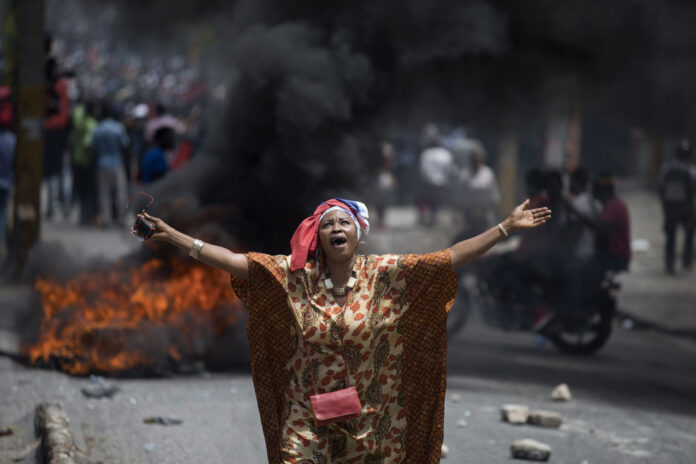Haiti is marred by a worsening humanitarian crisis, one that the United Nations describes as cataclysmic.
Hundreds of thousands of Haitians have now fled their homes due to rampant gang violence, finding refuge wherever they can; in parking lots, abandoned schools, churches and even government buildings, often with no running water or flushing toilets.
The international community has largely failed to keep up with the spiralling crisis which has seen at least 360,000 people in the country flee their homes over the past year, with the number of internally displaced people expected to cross 400,000 in the coming months, according to the UN International Office for Migration. These masses of homeless families, have nowhere to go, lacking access to latrines, water and food in the impoverished camps they shelter in.
The Head of Emergency Operations, UN Migration Office in Haiti, Daniele Febei has said that about half of the homeless people – more than 180,000 – are children, including unaccompanied minors, orphans and others separated from their parents in the chaos of the gang violence.
The UN and its agencies are providing humanitarian services at a national scale, with millions of liters of water having been delivered and hundreds of thousands of meals from the World Food Program being provided. But it is not enough. Even today about 30,000 people are living in homeless encampments without access to water, due to lack of funding. The United Nations has been unable to raise adequate funds to address the humanitarian needs of the crisis, with just 16% funds out of a target of $674 million being received from donor countries, with the United States providing $69.5 million of the $107 million raised so far.
In a world rife with disasters, humanitarian crises and armed conflicts – from Gaza to Ukraine to Sudan, East Africa, Myanmar, Afghanistan and others, Haitians have largely been forgotten, even as hurricane season approaches the broken nation, which today has a barely functioning national government. This is in stark contrast to billions of dollars Haiti received from the international community in the aftermath of the devastating 2010 earthquake that ruined the country.
Compounding the current crisis is the fact that the Haitian government agency whose job it is to help refugees, normally focuses on natural disasters, not man-made ones, especially a disaster caused by widespread gang violence. In the three years since the assassination of the Haitian president Jovenel Moïse, and the recent resignation of Prime Minister Ariel Henry – Haiti’s gangs have only increased their violence and territorial control. In late February 2024, almost the entire Haitian capital of Port-au-Prince was emptied out, with a mass of humanity running for their lives as gangs took control of their neighbourhoods and streets. One of the main goals of the Gangs’ now is to prevent an international security force led by Kenya from deploying to Haiti.
As the violence increases and it becomes harder to provide direct services, many humanitarian organisations are shifting towards providing cash payments to heads of households and those who host displaced persons. A trend of ‘reverse migration’ has also set in, with many people returning back to their rural communities from where they originally belong.
With each passing day, hurricanes approach, threatening to turn a dire humanitarian situation into a massive human catastrophe, as the world numbly watches on.










